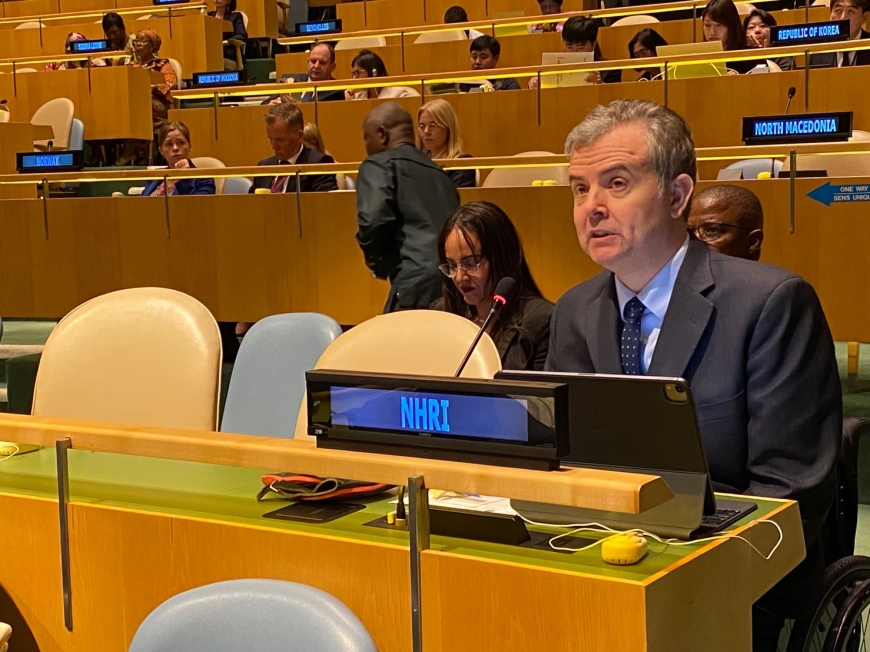Disability Discrimination Commissioner's intervention at COSP16

Intervention on behalf of the Australian Human Rights Commission By Dr Ben Gauntlett, Disability Discrimination Commissioner, at the 16th Session Of The Conference Of States Parties To The CRPD
Madam Vice-President.
The Australian Human Rights Commission, an A-status National Human Rights Institution, welcomes the overarching theme of this year’s Conference of State Parties concerning harmonising national policies and strategies with the CRPD.
In Australia, the main policy framework for the implementation of the CRPD is Australia’s Disability Strategy. This is the second national strategy since Australia ratified the CRPD in 2008 and was developed with significant consultation with people with disability. An ongoing challenge in harmonizing national policies and strategies with the CRPD is due to the federated model of government that exists in Australia, which creates disparities in rights protections in different Australian jurisdictions.
An outcomes framework complements Australia’s Disability Strategy, with the first report published this year presenting baseline data across priority policy areas. Work is underway to build a National Disability Data Asset, connecting data in a de-identified manner across governments to track outcomes of policy endeavours. This is potentially world leading and foundational to monitoring progress and implementing Article 31 of the CRPD.
There is though no designated independent national monitoring mechanism in Australia, as is required under Article 33(2) of the CRPD. To enable several important policy indicatives to thrive, this needs to change.
In terms of the sub-themes of the Conference, concerning accessibility of sexual and reproductive health services for persons with disabilities, digital accessibility and reaching under-represented groups of persons with disabilities, Australia does not have a Human Rights Charter and requires discrimination law reform. The impact is that many CRPD rights are not incorporated into domestic laws and gaps exist in the legal protections afforded to people with disability, and indeed all Australians. Again, this needs to change. The Commission will continue to recommend the establishment of more robust mechanisms for the full and effective engagement of people with disability in policy development, implementation and monitoring in Australia.
Thank you.
